MercoPress. South Atlantic News Agency
Tag: Indec
-
Wednesday, November 24th 2010 - 20:21 UTC
IMF mission arrives in Buenos Aires first week of December

The International Monetary Fund confirmed Argentina’s request for technical assistance on the elaboration of a Consumer Price Index (CPI). In a statement release by Nicolas Eyzaguirre, Director of the Western Hemisphere Department added “we are currently in contact with the authorities on planning the missions”.
-
Tuesday, November 23rd 2010 - 19:16 UTC
Argentina requests IMF technical aid to help with a new prices index
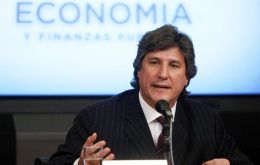
Argentina’s Economy minister Amado Boudou announced Tuesday that the President Cristina Fernández de Kirchner's administration is to request aid from the International Monetary Fund to help with a new price index.
-
Saturday, November 20th 2010 - 03:15 UTC
Argentine economic activity expands strongly in September but at slower pace

Argentina's economy activity expanded strongly in September but at a slower pace than in previous months, according to a Friday release from the country’s Statistics Office, Indec.
-
Friday, November 12th 2010 - 15:43 UTC
Inflation or no inflation: that is the question for the Argentine government
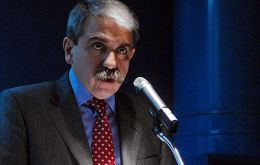
Fissures inside the Argentine cabinet are surfacing and refer to one of the most irritating issues for the administration of President Cristina Fernandez de Kirchner: inflation or no inflation.
-
Sunday, August 22nd 2010 - 03:05 UTC
The Economist on Argentina's economy: happy-go-lucky Cristina
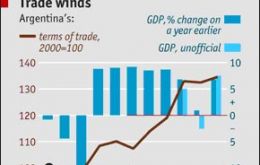
Earlier this year, Cristina Fernández de Kirchner, Argentina’s president, proffered some advice to European governments facing recession and market panic. Its essence was “stuff the IMF and carry on spending.” It is what she and her predecessor and husband, Néstor Kirchner, have practiced since 2003. Argentina is one of only a handful of countries that refuse all dealings with the IMF. Almost a decade after it defaulted on $90 billion of debt when its economy collapsed, it still has few financial ties with the world and very little bank credit. Yet contrary to repeated forecasts of doom from orthodox economists, the economy is roaring.
-
Monday, August 16th 2010 - 05:08 UTC
Argentina official July inflation, 0.8%; private sector and unions: 1.9%
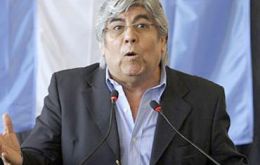
Argentina’s annual inflation rate in July rose to the highest level since May 2006, led by higher costs for leisure goods and clothing. Consumer prices increased 11.2% from a year earlier and 0.8% from June the national statistics institute Indec, said.
-
Tuesday, July 27th 2010 - 23:37 UTC
As Argentine economy picks up, imports soar and trade surplus is down
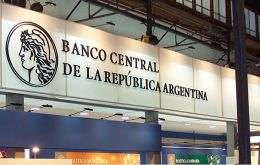
Argentina's trade surplus narrowed by 19% in June from the same month a year ago, falling short of market expectations as brisk economic growth fuelled demand for imports, according to official data released last week.
-
Monday, July 12th 2010 - 03:52 UTC
Argentina and Venezuela with highest (and climbing) inflation in South America
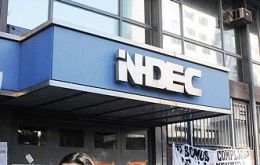
While most of South America is undergoing a deceleration of consumer prices Argentina and Venezuela are the only countries to experience a significant increase in inflation, making it one of the main concerns or public opinion.
